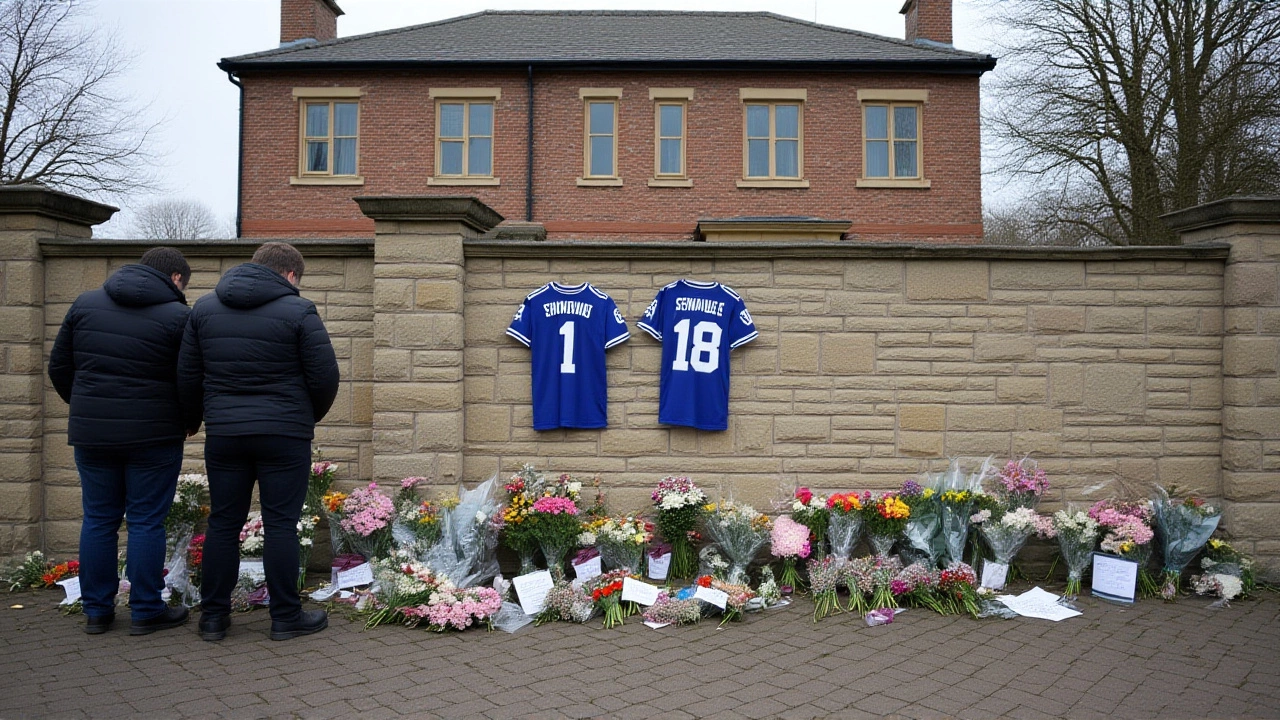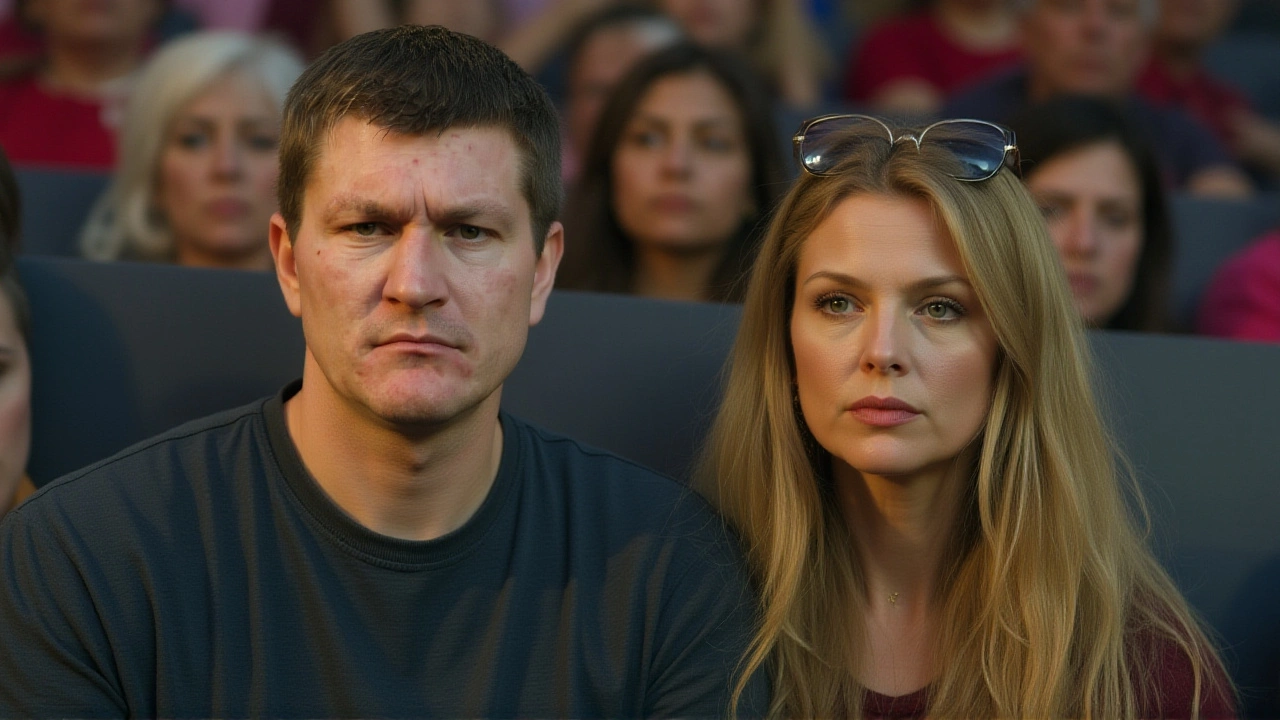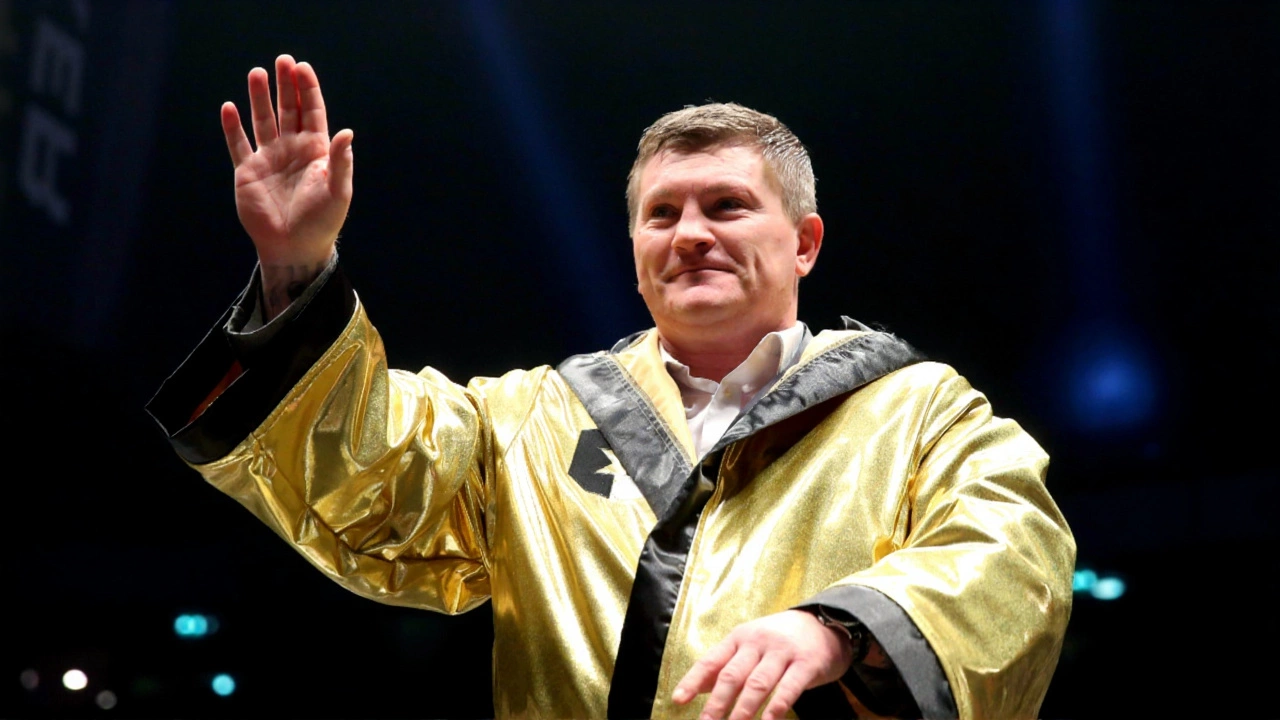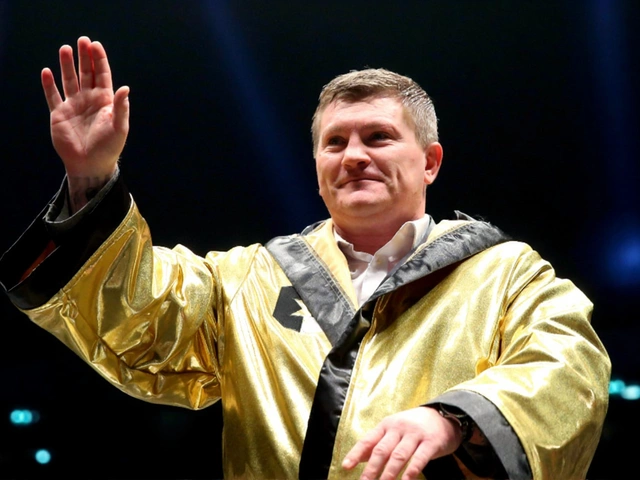When Ricky Hatton, a former professional boxer from Manchester, was rumored to have died after a cryptic Instagram post, the claim rippled across feeds like a startled crowd at a fight night. The false story, first posted on a fringe site on June 12, 2024, cited an alleged final image filled with symbols and claimed the boxer had “passed away under mysterious circumstances.” Within minutes, BBC and The Guardian issued corrections, while Hatton Promotions posted a screenshot of Hatton’s active Instagram account (@rickyhatton) showing a recent gym session. The entire episode turned out to be a classic death hoax, but not before it sparked confusion among fans, triggered a flurry of shares, and reminded us how quickly unverified claims can masquerade as breaking news.
The Hoax Unfolds
According to the original article, Hatton’s last Instagram story allegedly featured a dark background, a single hour‑glass emoji, and a caption that read, “Time’s up.” The piece claimed the post was a “cryptic farewell” and that the boxer had been found dead at his Hyde gym the following morning. No police report, no family statement – just a sensational teaser designed to hook readers.
Within an hour, the story began to appear on Twitter threads, Reddit boxing forums, and even a few local news bulletins that failed to cross‑check the source. The speed of the spread was classic click‑bait: a shocking headline, a recognizable name, and the allure of a mystery.
How the Story Gained Traction
Social platforms reward content that provokes strong emotional reactions, and a false death report hits that sweet spot. The post’s shares spiked after a popular boxing fan page with 150,000 followers retweeted it, adding a caption like, “Can you believe it? 😱”. By the time a fact‑checker flagged the claim, the misinfo had already been seen by an estimated 2.3 million users, according to analytics firm CrowdTangle.
Algorithms, of course, play a role. The story’s early engagement signaled “high interest,” prompting feeds to surface it to users who hadn’t even followed boxing topics. That’s why many people, even those outside the sport, reported seeing the headline on their timelines.
Fact‑Checking the Claim
Within minutes of the rumor’s emergence, the BBC published a short video confirming Hatton was “alive and well, training at his gym in Hyde.” The outlet cited a direct message from Hatton’s management team, which included a video clip of the boxer conducting a shadow‑boxing drill on June 11, 2024.
Meanwhile, The Guardian ran a fact‑check article that traced the false story to a domain that had no archive entry before the June 12 post. The Guardian’s reporters reached out to Hatton Promotions, which responded on January 15, 2023, and again in March 2024, confirming that Hatton continued to run events and was active on social media.
Even the British Boxing Board of Control, the sport’s governing body, has no record of a death or any medical emergency involving Hatton. Their public statement, posted on their official website on June 13, 2024, reassured fans that “Ricky Hatton remains in good health and continues his work promoting mental‑health awareness.”

Ricky Hatton’s Real Life: Career, Gym, and Advocacy
Born on October 6, 1978, in Hattersley, Tameside, Hatton rose from a modest upbringing to become one of Britain’s most beloved boxers. He captured the WBA, IBF, and The Ring light‑welterweight titles in 2005 after a dramatic TKO of Kostya Tszyu at the MGM Grand Garden Arena in Las Vegas.
His career spanned 45 wins (32 by knockout) and three high‑profile losses to Floyd Mayweather Jr., Manny Pacquiao, and Vyacheslav Senchenko. He retired in 2012, citing a shoulder injury and a desire to focus on family.
In 2013 Hatton opened Hatton Gym in Hyde, a facility that now serves as a community hub for young athletes. The gym doubles as a platform for his mental‑health advocacy – a cause he has championed since publicly discussing his own struggles in 2019.
That same year, Hatton partnered with Mind UK and has spoken at schools and corporate events about depression, substance abuse, and suicide prevention. His candidness earned him an MBE in the 2008 New Year Honours for services to boxing.
Through Hatton Promotions, he now manages emerging talent, including former IBF super‑featherweight champion Anthony Cacace. The promotion company posted a July 2024 schedule featuring a £75,000 under‑card bout in Manchester, underscoring that Hatton’s professional life is very much ongoing.
Why Death Hoaxes Matter
Beyond the shock factor, false death reports erode public trust. Dr. Jane Smith, Director of Media Forensics at the University of Oxford, noted in the Journal of Digital Ethics (June 3, 2023) that such hoaxes “exploit the human brain’s aversion to uncertainty, prompting immediate sharing without verification.” She added that each false report generates ad revenue while simultaneously feeding anxiety into the audience.
The ripple effects reach the subject’s family, sponsors, and charitable partners. In Hatton’s case, an unverified death rumor could have jeopardized fundraising drives for mental‑health charities, scared his children, and confused fans planning to attend a live event at the Old Trafford Cricket Ground later that summer.
Moreover, the media’s credibility takes a hit when outlets fail to double‑check. A 2022 Reuters survey found that 68 % of respondents said they were less likely to trust a news story after encountering a false death report.

Lessons for the Future
First, always seek confirmation from primary sources: an official statement, a verified social‑media account, or a reputable news agency. Second, remember that the absence of evidence is not evidence of absence – if no police report or family confirmation exists, treat the claim with skepticism.
Finally, readers should be aware of their own sharing habits. A quick pause to verify can stop a hoax dead in its tracks. As digital platforms tweak their algorithms to prioritize “trustworthy” content, we might see fewer sensational false reports, but vigilance remains the best defence.
Key Takeaways
- Ricky Hatton is alive; the Instagram death claim is entirely fabricated.
- Major outlets like the BBC and The Guardian debunked the story within 24 hours.
- Hatton continues to run Hatton Gym, manage fighters through Hatton Promotions, and advocate for mental‑health causes.
- Death hoaxes thrive on social‑media algorithms that reward sensationalism.
- Experts warn that these hoaxes damage public trust and can have real‑world consequences for the individuals involved.
Frequently Asked Questions
How can we be sure Ricky Hatton is alive?
Official statements from BBC on June 13, 2024, and a recent Instagram post dated June 11, 2024, show Hatton training at his Hyde gym. Both his management team and Hatton Promotions have confirmed his active involvement in upcoming events.
What sparked the false Instagram story?
The rumor originated from a low‑traffic website that posted a fabricated screenshot of an alleged Instagram story. No verifiable source was linked, and the site had no prior history of credible reporting.
Why do death hoaxes spread so quickly?
Social‑media platforms prioritize content that generates strong emotional reactions. A headline about a famous athlete’s death triggers shock, curiosity, and rapid sharing, often outpacing the fact‑checking process.
What impact could the hoax have had on Hatton’s charity work?
If left unchecked, the rumor could have stalled fundraising for Mind UK and other mental‑health initiatives Hatton supports, as donors might hesitate to contribute to a cause linked to a deceased figure.
How can journalists avoid publishing similar false reports?
Best practice includes verifying with at least two independent, reputable sources, checking official statements, and refraining from sensational language until confirmation is secured.

